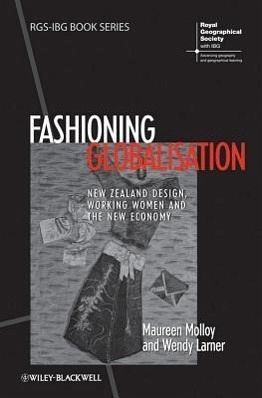
Fashioning Globalisation
New Zealand Design, Working Women and the Cultural Economy
Versandkostenfrei!
Versandfertig in über 4 Wochen
87,99 €
inkl. MwSt.
Weitere Ausgaben:

PAYBACK Punkte
44 °P sammeln!
There have been endless studies mapping the iniquities of globalised capital, especially the employment practices of the garment industry in the Third World. Yet even as women (and others) in outsourced sweat shops suffer a form of modern-day bondage, women in developed nations are carving out new careers in the fashion industry as mid-level entrepreneurial designers. Operating between the spectacular pleonasms of haute couture and ubiquitous 'designer diffusion' lines such as DKNY, these artisans of 'high casual' fashion evince a number of features of late capitalism, such as 'creative cities...
There have been endless studies mapping the iniquities of globalised capital, especially the employment practices of the garment industry in the Third World. Yet even as women (and others) in outsourced sweat shops suffer a form of modern-day bondage, women in developed nations are carving out new careers in the fashion industry as mid-level entrepreneurial designers. Operating between the spectacular pleonasms of haute couture and ubiquitous 'designer diffusion' lines such as DKNY, these artisans of 'high casual' fashion evince a number of features of late capitalism, such as 'creative cities', cultural mediation and 'work-style' businesses that are distinctively gendered. At the heart of this volume, which focuses in depth on the dynamics of independent fashion design in New Zealand, lies the assertion that there exist as-yet untraced links between the entry of first world women into paid employment, and the wider processes of globalisation. This revealing study of New Zealand fashion demonstrates that economic globalisation, the movement of middle-class women into the labour force, and the changing structure of the fashion industry are not only coterminous but intrinsically connected.


